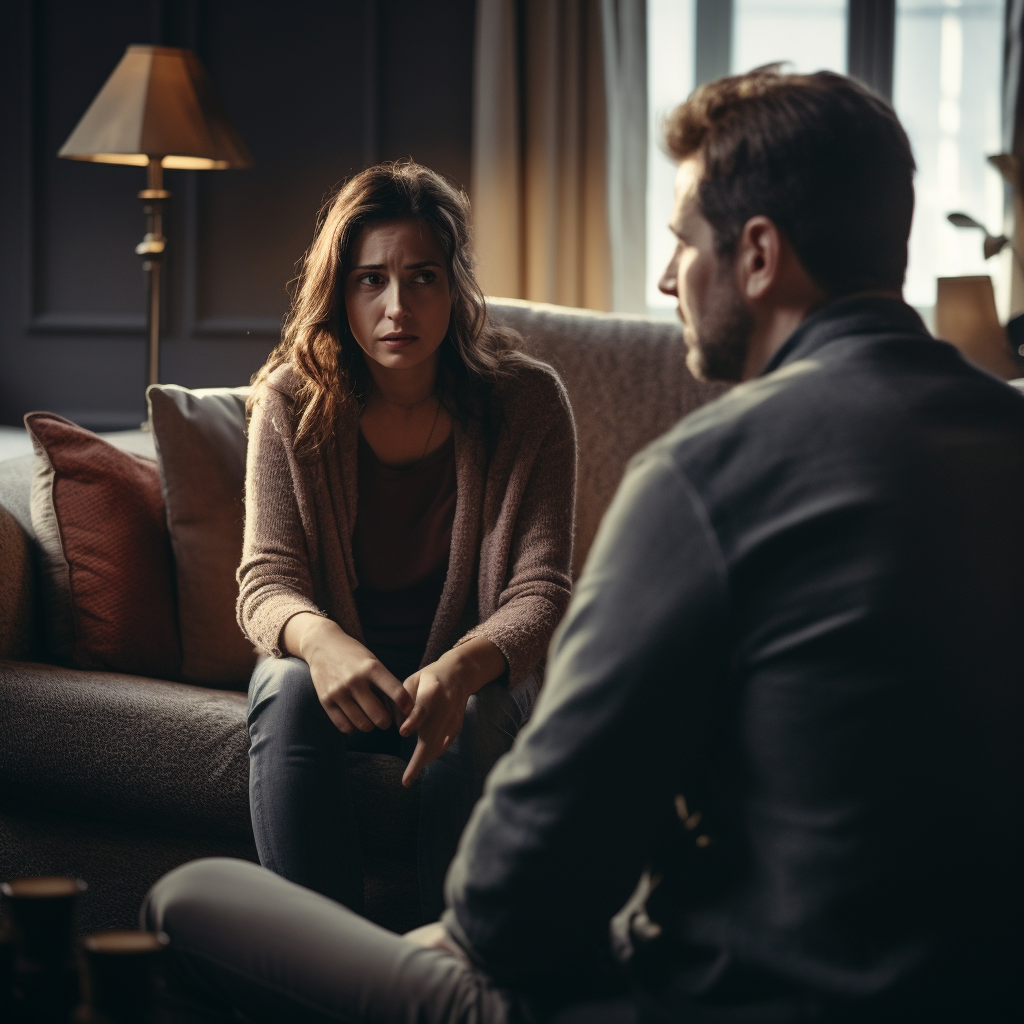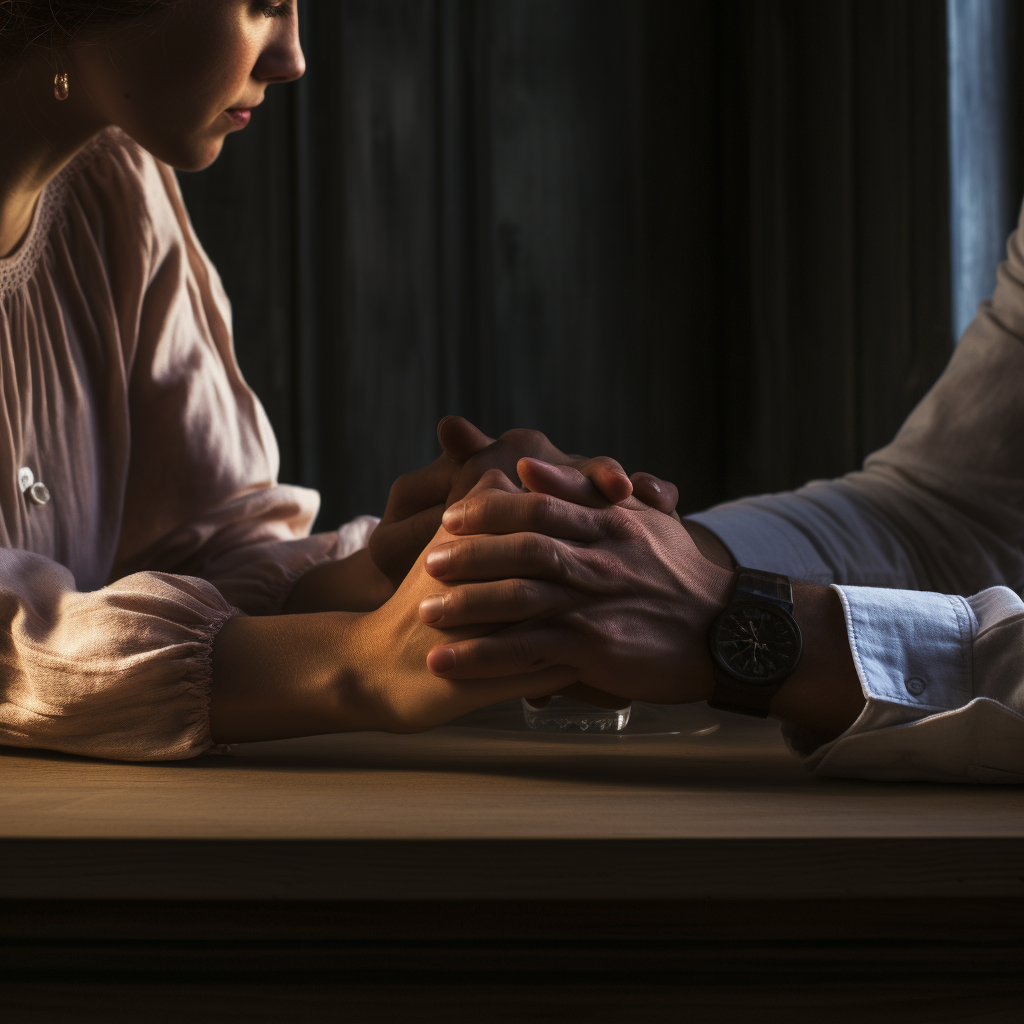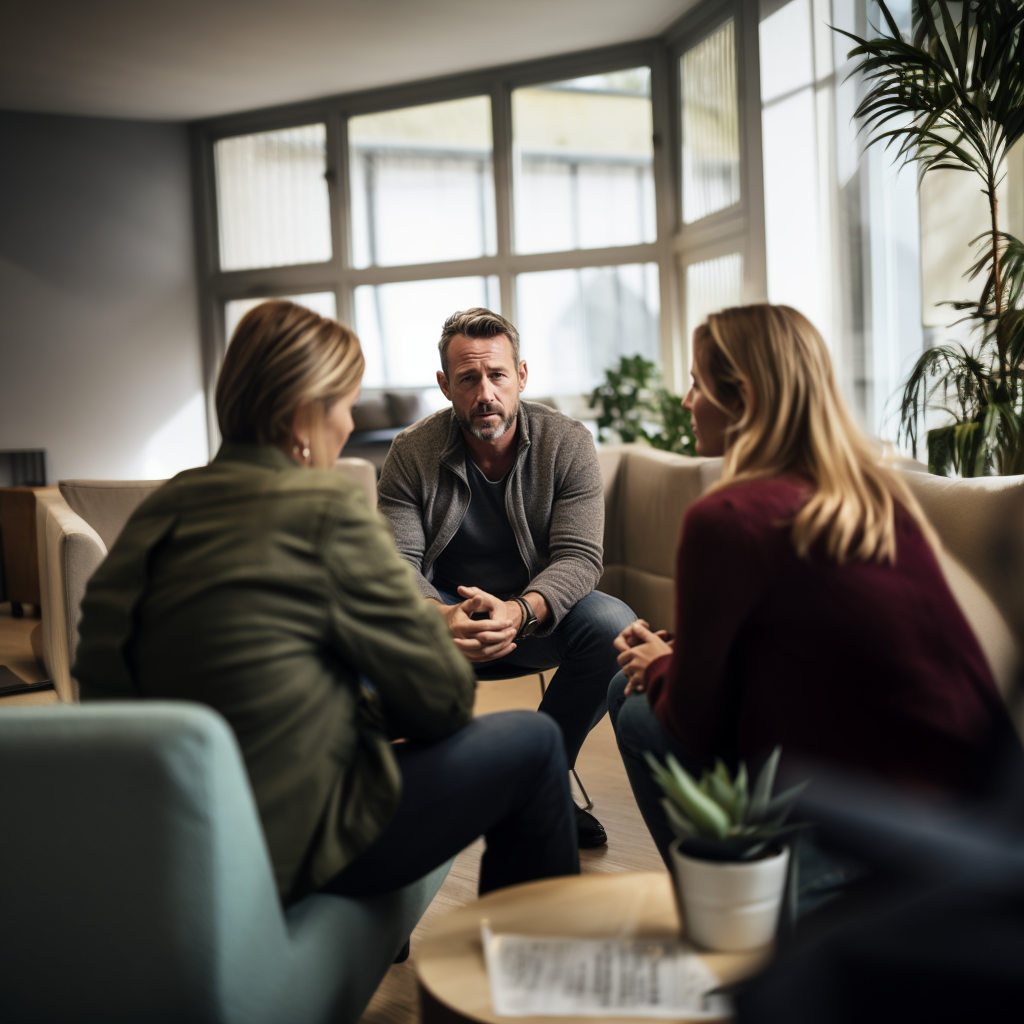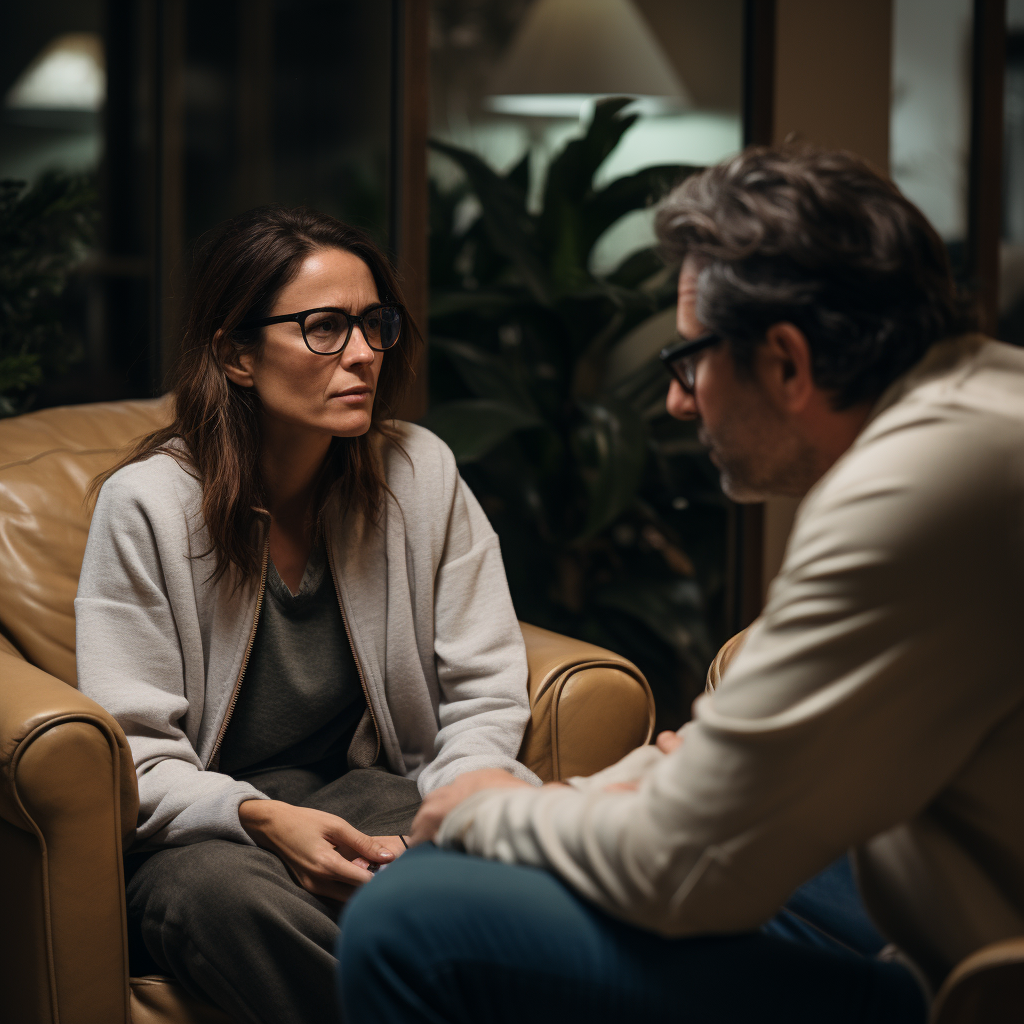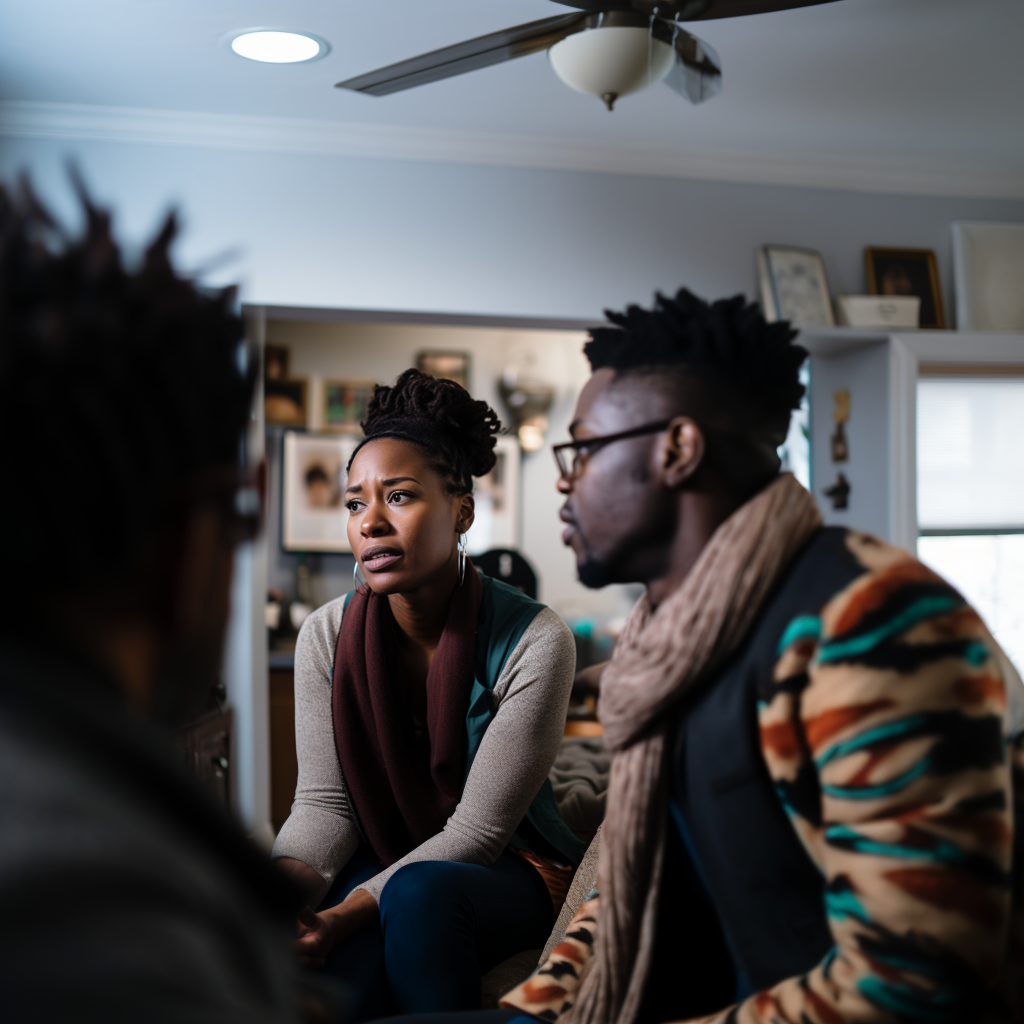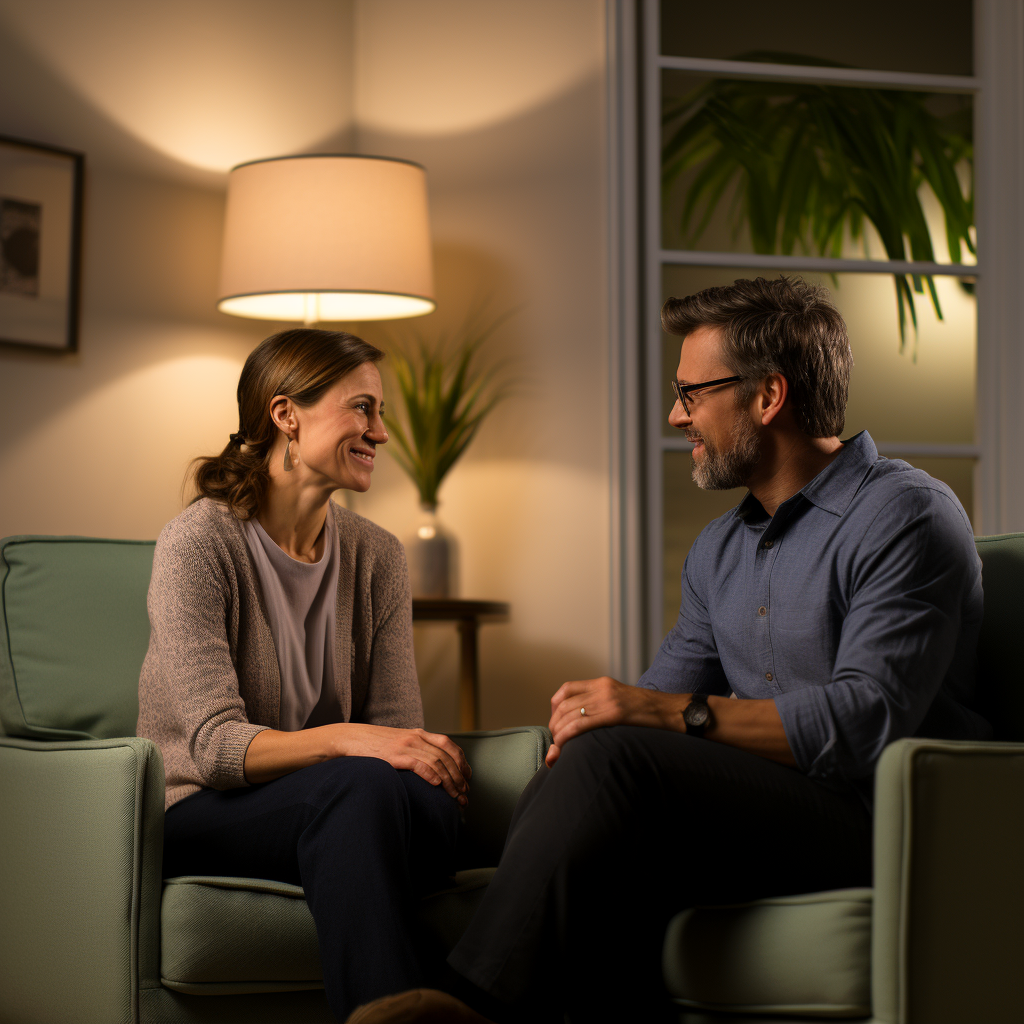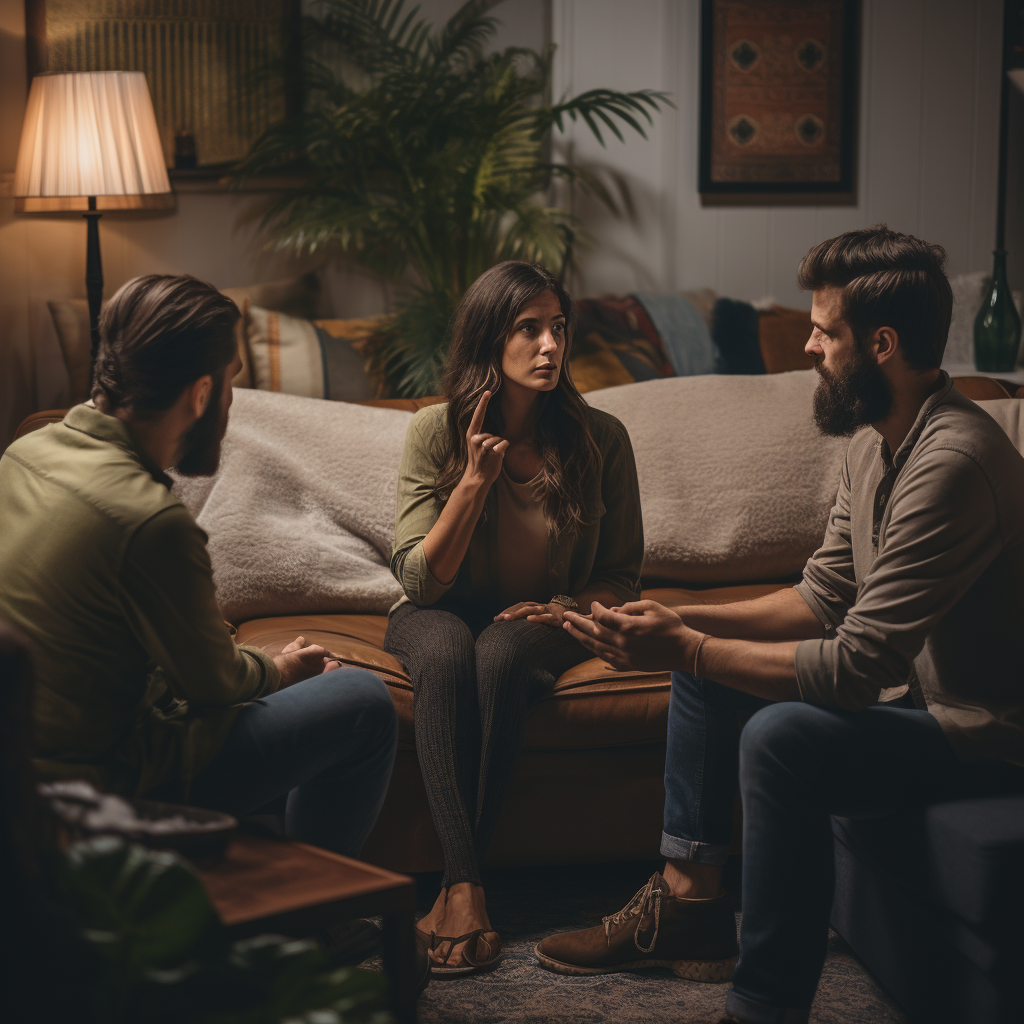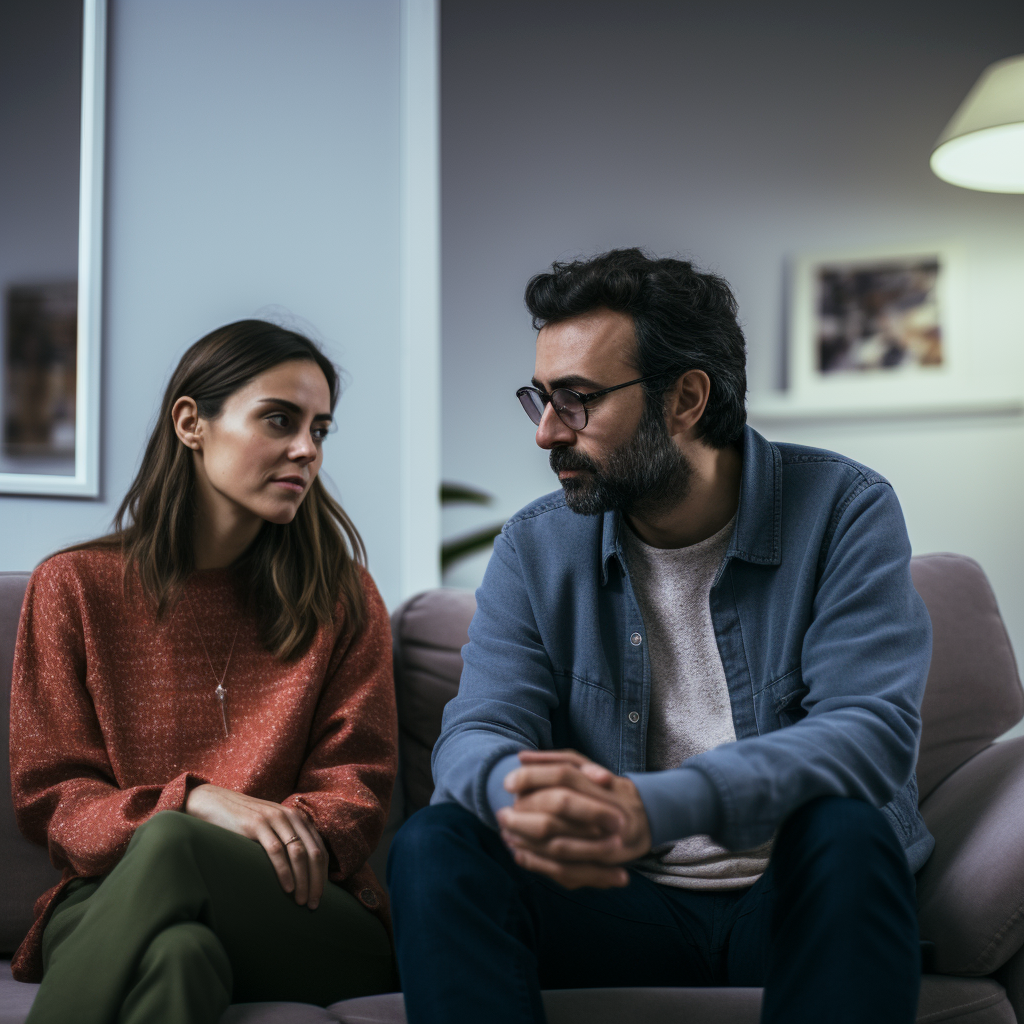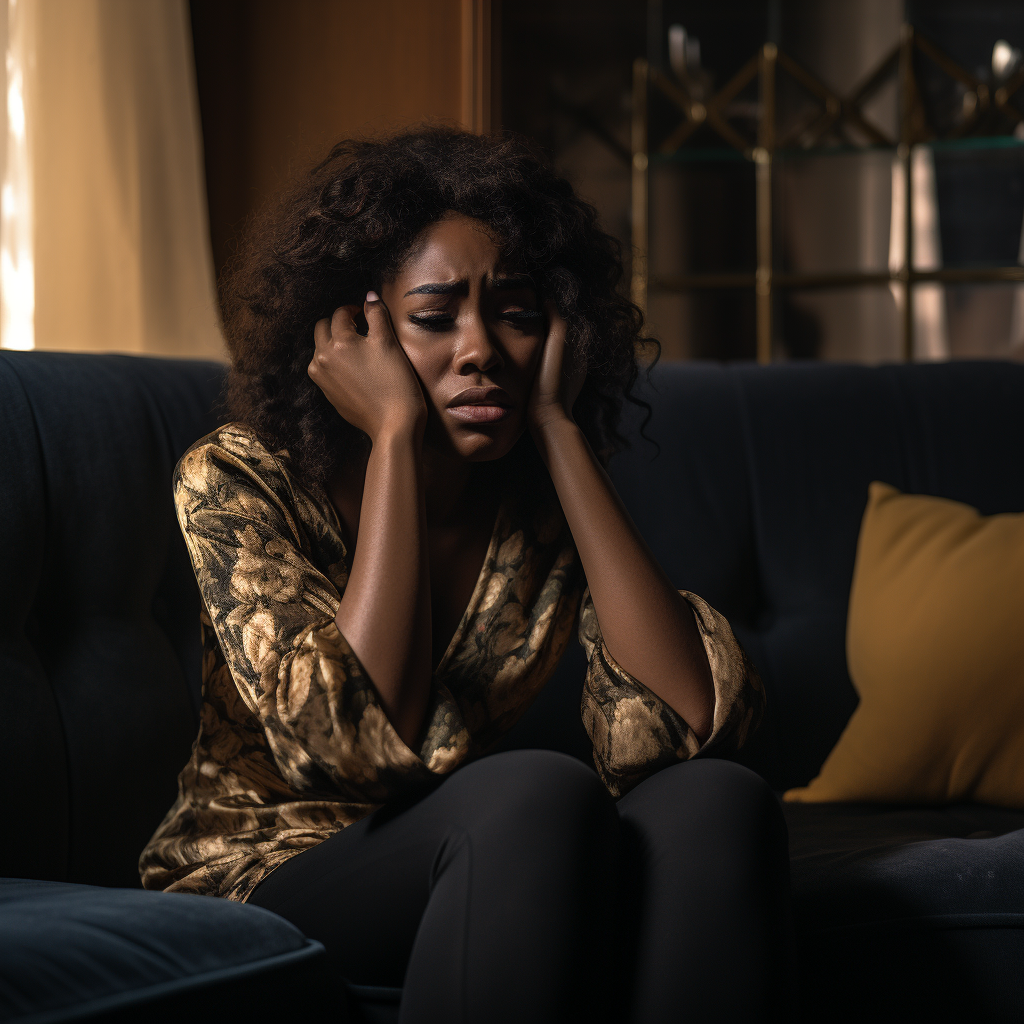Can Relationship Counselling Help Your Relationship? Here are the Top 11 Reasons.

Whilst not all partners want to seek help and talk about their relationship, it really is a life-changing experience.
Some couples come for help with a single issue that they have tried to resolve at home, however for most couples, it takes 6 years to even contact a therapist.
There is no need for six years of relationship issues before seeking out relationship therapy. That is a lot of suffering in a long term relationship, and this prolonger period of distress can lead to additional mental health issues.
Imagine 6 years of hurt, conflict and resentment all building up at home with the person you love, and perhaps even have a marriage with.
Imagine all the years of upsetting fights without a resolution. Imagine the words said in anger that cannot be taken back or the cold war of silence as partners ignore each other until they recover.
Over the years, partners lose trust and respect for each other. Life at home becomes upsetting; replaying the same hurtful pattern of arguments.
Ending the cycles
To get out of these cycles, partners need to see a couples therapist who can help them develop an understanding of their situation from both partners’ perspectives and improve their communication skills.
Couples therapy helps couples build a strong foundation. Here are 11 reasons why:
1 - Receiving help
At different times or stages in life, our lives can become really hard. Sometimes our world gets turned upside down. This could be dealing with a loss or illness, navigating how to raise children, a partner having an affair, or not being able to connect with our partner. We are chartering unfamiliar waters and need some guidance and support to get through the process.
Many couples will seek out a couples therapist or relationship counselling to help partners work through complex life situations in a supportive environment taking many perspectives into account. Others will seek a counsellor to determine whether marriage is a viable option for their relationship before making the big decision. Regardless of the individual reasons, it is okay to want extra support at various stages of life.
Seeking external help like a relationship counsellor can take difficult periods that feel daunting and support you through the rough patch.
Remember, you don't need to be in crisis to consider relationship counselling. Just like how a weekly date night or watching a show together at night can increase intimacy and act as a safeguard for the relationship, relationship counselling can help maintain the quality of a relationship and prevent it from slipping into a darker place.
2 - Improving communication
Throughout our life, there are times when we don't intuitively know how to communicate well with our partner. It’s not our fault we don’t have these skills, yet it is important to develop them if we want a safe and caring relationship.
A therapist allows couples to actively converse in a comfortable environment where partners can express themselves and really listen to their partner. Working with a couples therapist to embark on emotionally focused couples therapy promotes communication between you and your partner.
3 - Building trust
When couples have had many unsuccessful attempts at communicating at home, they can lose trust in each other’s ability to resolve things. Very often a partner can feel that they are right and that their partner has no idea about life at all.
Couples therapy becomes a safe space to share their thoughts and feelings and begin rebuilding trust. The therapist helps both partners learn to listen to each other and develop respect for their different perspectives.
Over time you can rebuild trust in the relationship which helps partners feel more connected to each other once again.
4 - Non-judgmental approach
Therapists understand that life is complex and can at times be difficult for anyone to navigate alone. Therapy is not about judgment or labelling someone as “bad”. I see myself as being alongside my clients – never above them. It is not a blame game as this would not do anything to break harmful patterns of conflict.
A therapist’s role is to understand why their clients behave or think in a particular way and how this is impacting them or their life situation. They then use this knowledge to help clients challenge these patterns of thinking and behaviour.
A non-judgmental approach is essential for a successful therapy experience.
5 - Increases compassion for one another
We all carry different ideas of what a committed relationship should look like and how partners should treat each other. For many of us, we react to situations automatically. Couples therapy helps us to have a better understanding of the different ideas that each person in the relationship has and how the difference between these can cause conflict. This can transform automatic reactions into kind and intentional ones, and increase the level of compassion and empathy that you and your partner carry for each other.
Developing a greater understanding of how you and your partner think, feel and behave is vital for couple health and wellbeing. So much can be changed just by having a deeper understanding of yourself and your partner.
6 - Allows both parties to be heard
During times of conflict, it is exceedingly difficult for partners to listen to each other. With a therapist or relationship counselling both partners are given the opportunity to speak about and reflect on their own thoughts around conflict or a particular situation. This does not mean equal air time is provided, but rather than they are given an equal opportunity to express themselves and be heard.
A counsellor can be key to facilitating these interactions. Without a professional present, these interactions can often turn accusatory and become unnecessarily heated, which runs the risk of further damaging the relationship.
7 - Freedom and ability to share any conflicts
Many partners are not able to speak about less than positive aspects of the relationship. Instead, they bottle it up and avoid communicating their feelings with their partner. Often, they fear upsetting them or causing conflict.
In therapy, a third-party is navigating the partners through their difficulty, as well as managing any responses or reactions that arise. The therapist is continuously trying to understand and process the partners differing perspectives so that they are as free as possible to speak about what is going on for them.
8 - Freedom and ability to share any conflicts
Being a couples therapist is a privileged position. I am very aware how I am invited into the very private lives of the couples I work with. Safety in therapy is extremely important and I achieve this in many ways: through confidentiality, respecting both partners, having a non-judgmental approach, being knowledgeable, and genuinely caring about their wellbeing.
When couples know that they have a safe space to share their emotions they are more inclined to be open and work wholeheartedly in the therapy.
9 - Promotes positive changes
Through the therapy process, couples learn to communicate well and decrease their conflict. This is an incredibly positive experience for couples as they are no longer repeating the same upsetting cycles of conflict, they feel more connected to each other.
Good experiences fill the space, like a cuddle on the sofa, greater interest in hanging out together, and partners often become happier and more playful. These positive changes can also help couples feel safe enough to consider taking new steps, like moving in together or floating the idea of marriage.
10 - Promotes strengths
Therapy is not just designed for working through the hard times, it is also a way of looking at the positive aspects of a relationship and helping couples to build on their strengths. By the time some couples come to therapy (remember it is usually after 6 years of conflict), they may not remember their strengths.
In couples therapy, the therapist needs to acknowledge the couple’s strengths and any developments so that the couple can incorporate these changes into their image of the relationship or marriage. They then provide a structured process which enables the individuals involved to improve communication and gain clarity around their individual and couple strengths. For married couples, this can be a valuable reminder as to why they entered the marriage in the first place.
11 - Support the whole family with marital and family therapy
In some cases, partners may have children involved, and accessing relationship help will also help to protect the family unit.
In a family, conflict can negatively impact the children in many ways. It adds life stressors at a developmental phase where children are most in need of support and nurturing. This is where couples counselling can actually create increased love and decreased tension in key areas of both the marriage and family environment.
Married couples with children might consider marital and family therapy, since this can act as a safeguard for the children, preventing them from being exposed to harmful patterns of conflict.
Marriage counselling helps individuals assess their marriage
A large volume of marriages end in divorce, and even in a most amicable divorce, this can still be a distressing process.
Even if a married couple is considering divorce, marriage counselling can assist you to decide whether this is the best course of action or whether the marriage still has potential.
A marriage can be placed under pressure due to many different stressors. These stressors can erode the quality of a relationship and leave both parties feeling dissatisfied. Marriage counselling can help you sift through all the different variables and assess whether the marriage is worth working on, or whether it is time to part ways.
Make changes now to preserve the relationship in the long run
By seeking professional help to assist your relationship, you can build successful relationships that will have good marital stability in the future. This will be a safeguard to both you and your partner's mental health.
Help can come in the form of marital and family therapy, a relationship counsellor, individual therapy or many other kinds of services from an expert mental health professional. Some options don't even require you to leave the house!
Even if one partner does not wish to go to therapy, giving the other partner the practical tools to promote positive changes in their relationship will create better communication between both parties. Either a couples counsellor or individual counselling can be beneficial to a relationship. This does not only apply to married couples since all relationships can benefit from positive changes to create a deeper connection.
What are the telltale signs?
In relationships, there are often telltale signs long before divorce and separation are floated. These signs are typically present long before relationship counselling is even considered.
Some telltale signs include lower levels of joy, increased frequency of conflict, a lower regard for your partner, and a more negative outlook on your relationships.
If you can identify the warnings early, couples counsellors can help create an intervention to create positive change and prevent these issues from escalating to a more severe place.
What happens in a couples counselling session?
Relationship counsellors provide individualised care tailored to your individual relationship. Marriage counselling can be embarked upon to improve a marriage and focuses specifically on your dynamic. Family therapy is a form of relationship counselling that focuses on counselling for the family as a whole, reducing conflict and improving communication for everyone, not just the people in relationships.
Is counselling different if you are in a marriage?
If you are in a marriage, there are a few additional factors that may or may not be present in other relationships that require consideration. There are some differences between a separation and a divorce since divorce comes with legal and social implications that don't always occur in other forms of separation. Tailored marriage counselling is a viable option for those facing extra challenges.
Couples counselling works
Whilst old habits in a relationship can be hard to break, counselling can be key to transforming a relationship. If both partners in the relationship are open to receiving the work, couples counselling can greatly improve a marriage or other partnership. Whilst it may take time to find the right professional, it is worth it to preserve the relationship, especially if you feel like the relationship or marriage is worth fighting through difficulties for.
Often there are telltale signs of relational difficulties long before words like divorce are floated. Relationship problems can slowly erode relationship satisfaction, and these only get addressed once there is significant marital distress within a marriage.
Divorce is not necessarily an inevitable solution - particularly if you both feel like the issues in the marriage can be overcome by putting in the time and effort.
I can't see a relationship counsellor - it is not a viable option right now
Does your partner feel that counselling is unnecessary right now? Are they open to other forms of relationship help that are not conventional relationship counselling instead?
If they are open to it, other methods of help have the capacity to protect a marriage from divorce or further relationship distress.
If couple therapy or other forms of counselling are not a viable option, there are other resources available to help, such as my online programs Fight Less, Love More, and Transforming Couple Communication.
These programs can be used by longer term couples in a marriage, a family, individuals or people who have only been seeing each other for a short period of time.
Creating a happy relationship comes from transforming poor communication into more fulfilling and robust couple dynamics. Healthy relationships take time to foster, and a relationship therapist or other therapeutic tools like online programs by experts can greatly speed up this process and assist in addressing relationship issues. If conventional sessions or marriage counselling is not for you, there are always alternatives available.
Help is always an option
There is always help available to support you through difficult times. There is no need to sit with excessive distress and dissatisfaction in your relationships. You can take steps today to safeguard your mental health and the quality of your relationship.
There is no need to wait until tensions escalate to seek support. And plus, improving your relationship can also have a positive run-on effect for your loved ones. Help is always an option.



